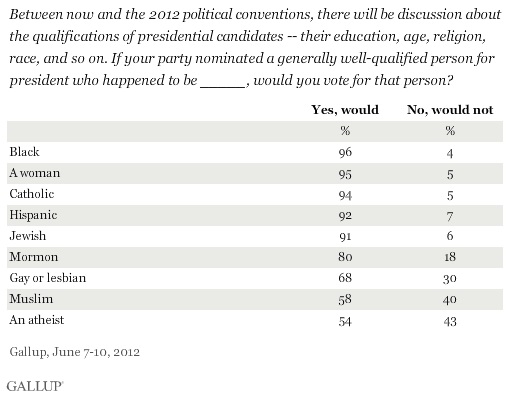The Stigma of Racism
Robert VerBruggen, Real Clear Policy, December 17, 2013
{snip}
Research conducted this year shows that this reticence [toward talk about race] isn’t rare at all. Scientists had a group of white adult volunteers play a game of Guess Who?–where players start with a lineup of faces and try to find the correct one by asking yes/no questions–with partners who were either white or black.
The lineup they were given was half-black and half-white, so asking about race was a great way to eliminate a lot of possibilities quickly. And yet 43 percent of the subjects failed to ask when the person answering the questions was white, and 79 percent didn’t ask when the person was black. Perhaps because their discomfort showed, the whites who didn’t ask about race were more likely to be seen as racist by outside observers (who for some reason were all white). Conducting the experiment with children revealed that this fear sets in around age 10.
There’s a bad side and a good side to this. The bad side is obvious: Many white people are so scared of being seen as racist that they’re not willing to talk about simple facts–and, ironically, they end up being seen as racist as a result. Many whites’ sensitivity to racism may have gone so far past the point of diminishing returns that it actively harms their relations with blacks. They place so much importance on demonstrating that black people don’t make them nervous that black people make them nervous.
The flipside, though, is an important fact this experiment reveals about America: The campaign to stigmatize anti-black racism–the most corrosive force in this country’s history–has been remarkably successful. In fact, while we love to talk about this or that as “the last acceptable prejudice,” it would be more accurate to say that racism and sexism are the only prejudices that are thoroughly unacceptable. As this chart from Gallup shows, many Americans are willing to say they wouldn’t support a Mormon, atheist, homosexual, or Muslim for president:
{snip}
But still. Going from Jim Crow to white people who refuse to utter the words “Is the person black?”–often categorically, but frequently in deference to a nearby person of color–in 50 years is a remarkable accomplishment for the civil-rights movement, both as a social force and as a driver of government policy.
















